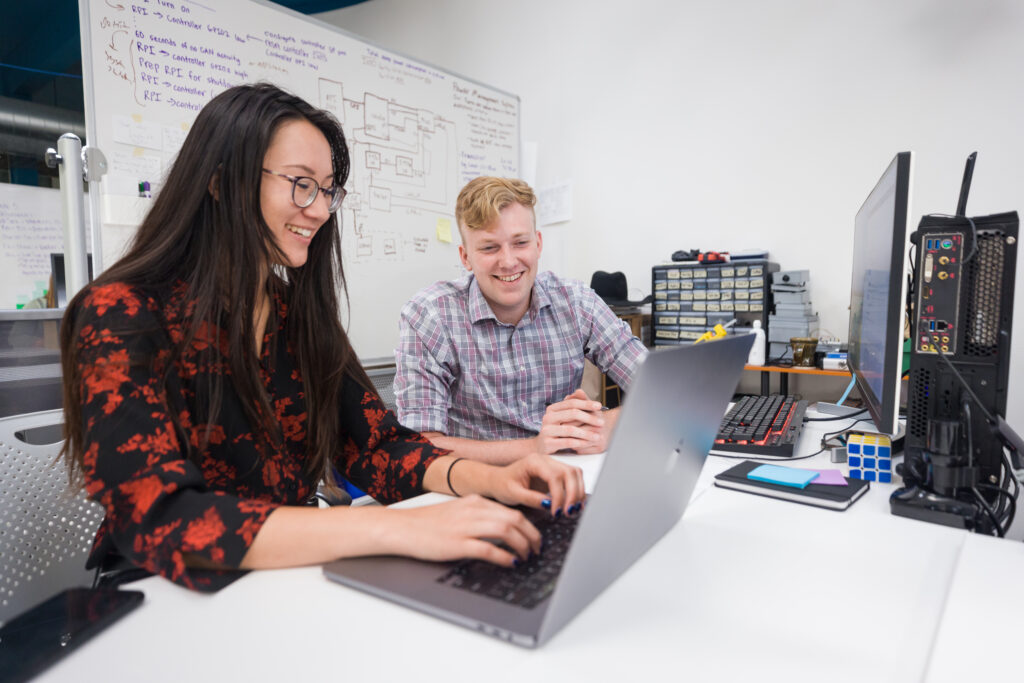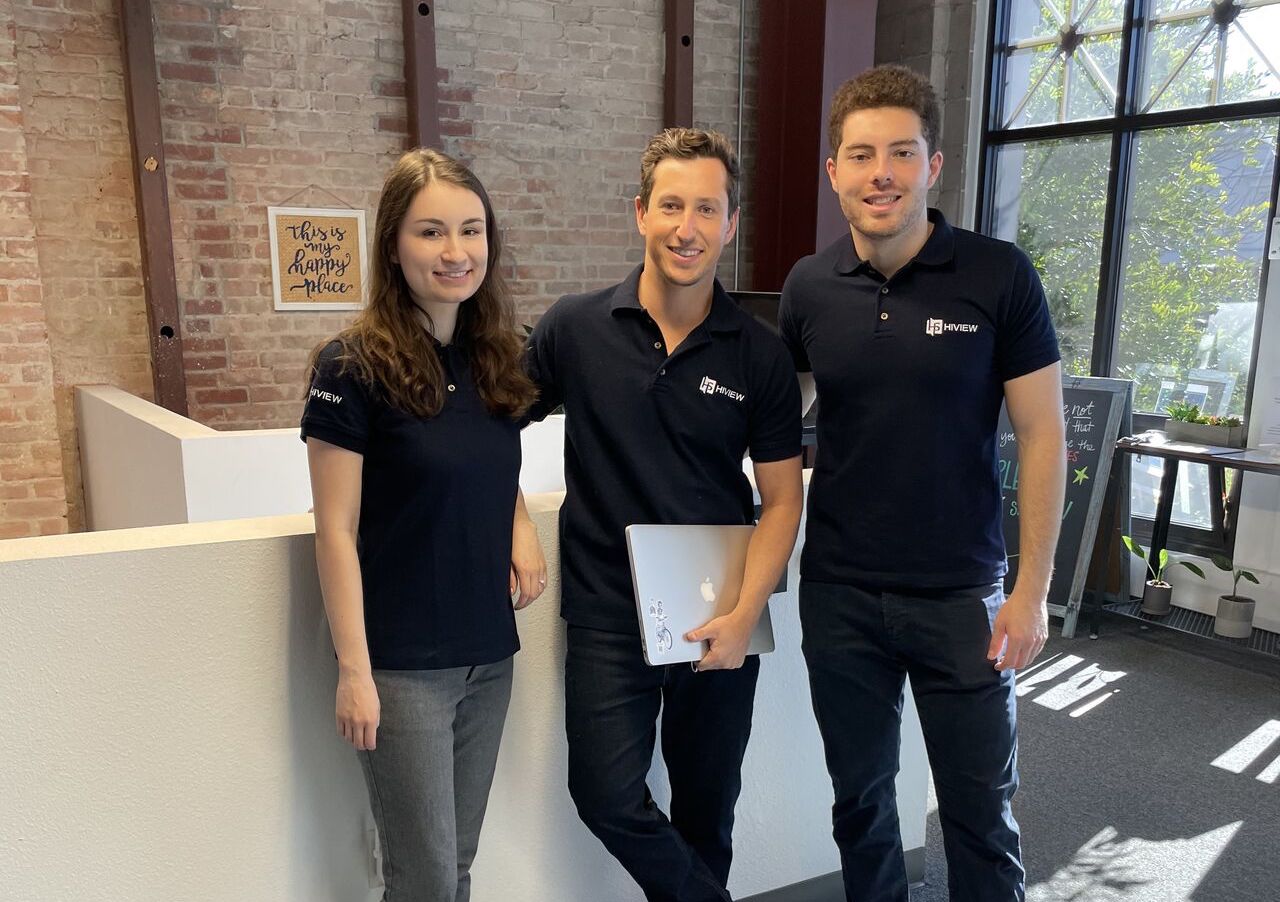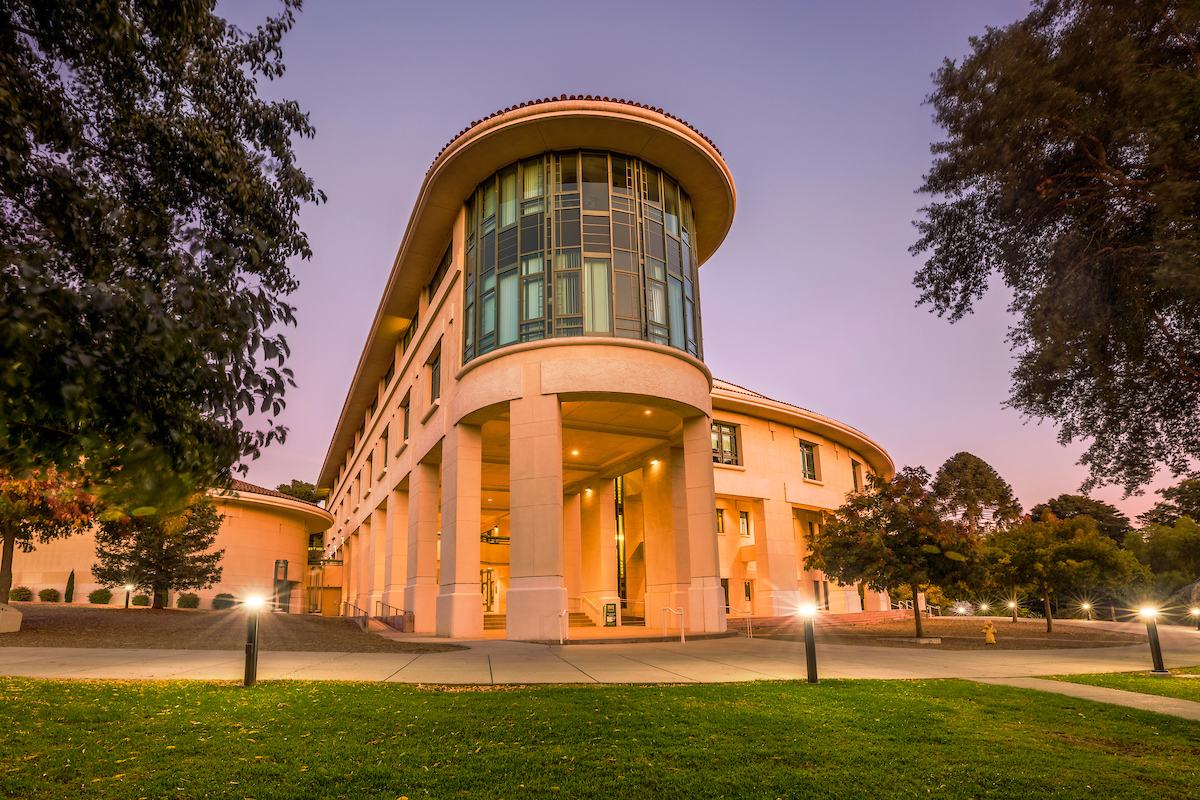Summer Accelerator Spotlight: TractorCloud

TractorCloud co-founders Roxanne Miller (left) and Morgan Swanson (right).
Morgan Swanson and Roxanne Miller are helping farmers manage their equipment with greater ease and efficiency. Their startup TractorCloud is developing a hardware-software solution that will help operations managers monitor predictive maintenance of their vehicles.
The idea for TractorCloud originated when Swanson, who will be graduating from Cal Poly in 2022 with a B.S. in computer engineering and an M.S. in computer science, learned that there was a widespread problem in the agricultural community, with farmers not knowing how to repair their own equipment.
“As an engineer, I thought there had to be a technological solution to this problem, and I worked really hard to find that solution,” said Swanson, TractorCloud’s CEO. “Eventually, I found a bunch of other problems that farmers were having with their equipment and I got really attached to the idea of helping farmers manage their equipment better.”
Swanson never expected to become involved in entrepreneurship prior to TractorCloud.
“I never wanted to be an entrepreneur,” he admitted. “It wasn’t until I realized that I would have to start a company in order to achieve my goals, that I realized I would have to learn these skills of entrepreneurship.”
Entrepreneurship was also an unexpected choice for Miller, who graduated from Cal Poly in 2021 with a B.S. in animal science and an M.S. in computer science. Her computer science education, however, taught her the value of product development, which prepared her for her current role as TractorCloud’s head of product.
“Through my computer science education, I realized that I really value being able to build something that I care about,” she said. “Being able to connect with customers and deliver them something that is going to change their lives ended up meaning a lot to me.”
The two co-founders recruited 2021 liberal arts and engineering studies graduate Takumi Arai and 2021 electrical engineering graduates Jin Huang and Kyle Kesler to develop their product.
The TractorCloud team is now working with the Cal Poly Center for Innovation and Entrepreneurship (CIE) to further develop their startup. They were one of nine startup teams chosen to participate in the CIE Summer Accelerator, an intensive, summer-long program that helps Cal Poly students and recent graduates develop their startup ideas into real, sustainable businesses.
The Summer Accelerator exemplifies the Cal Poly ‘Learn by Doing’ motto, providing teams with practical experience and applicable knowledge of the startup process.
“It’s been amazing going to [Summer Accelerator] sessions and learning something, and then we’re applying it tomorrow,” Miller said. “That’s helping me learn and grow much faster than just reading a book.”
The TractorCloud team is finding value in the relationships they’ve formed through the Summer Accelerator. The program creates countless networking opportunities for the team and connects them with mentors who can help guide them through the obstacles inherent in the startup process.
“Being able to stand there every week, face to face with someone who’s done this before, is extremely valuable,” Swanson said. “There’s immeasurable value that you can get from the right people at the right time, and the CIE has been instrumental in forming those connections.”
Participating in the Summer Accelerator is not only helping TractorCloud develop as a startup, but helping each team member grow as an entrepreneur. The program allows the team to explore the ins and outs of the entrepreneurial world, and that exploration has cemented their passion for entrepreneurship.
“Entrepreneurship, for me, is the quickest path to causing big change in the world,” Swanson said. “I want to influence the future of what we do as humans, and entrepreneurship seems like one potential and really powerful way of doing that.”
To keep up with TractorCloud, visit tractorcloud.io, follow them on Instagram at @tractorcloud or catch them at Demo Day on Sept. 14.








